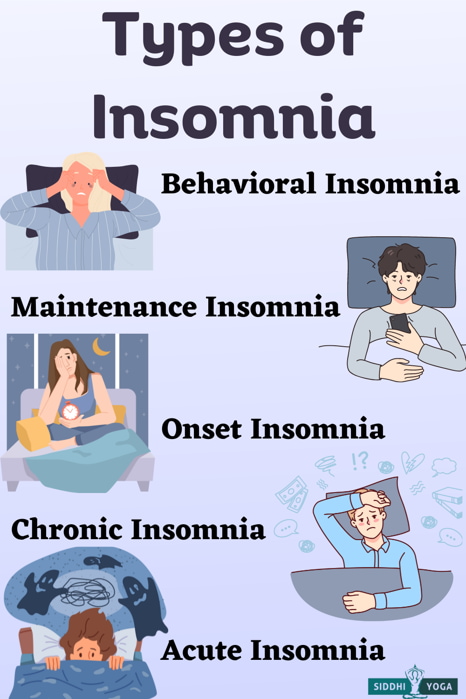Sleep maintenance insomnia, also known as middle insomnia, is a chronic sleep disorder marked by frequent nighttime awakenings and difficulty returning to sleep. Unlike sleep-onset insomnia, this condition disrupts the continuity of rest and impairs the restorative function of sleep, often leading to significant daytime fatigue, cognitive dysfunction, and mood disturbances. It affects individuals across various age groups, but is especially prevalent among older adults and those with underlying health conditions.

Defining Sleep Maintenance Insomnia
Sleep maintenance insomnia is characterized by:
- Repeated awakenings during the night
- Inability to return to sleep within 20–30 minutes
- Total sleep time reduced to less than 6–7 hours
- Occurrence at least three times per week for over three months
This condition may present on its own or coexist with other sleep disorders, such as obstructive sleep apnea (OSA), restless leg syndrome (RLS), or circadian rhythm disturbances.
Primary Causes of Sleep Maintenance Insomnia
1. Psychological Stress and Anxiety
- Elevated cortisol and adrenaline levels during the night interfere with sustained sleep.
- Ruminative thoughts and chronic worry prevent resumption of sleep post-awakening.
2. Depression and Mood Disorders
- Sleep continuity is often disrupted in patients with depression, particularly with early-morning awakenings.
3. Aging and Hormonal Changes
- Melatonin production and sleep architecture alter with age, increasing nocturnal wakefulness.
- Menopausal women may experience hot flashes or hormonal fluctuations that trigger sleep interruptions.
4. Nocturia
- Frequent nighttime urination, often linked to aging, diabetes, or prostate issues, disrupts sleep cycles.
5. Chronic Pain and Medical Illnesses
- Conditions such as arthritis, fibromyalgia, GERD, and asthma can awaken individuals due to discomfort or physiological symptoms.
6. Sleep Environment and Habits
- Excessive noise, ambient light, uncomfortable bedding, or room temperature can fragment sleep.
- Late caffeine, alcohol, or nicotine intake can impair sleep maintenance.
Symptoms and Impact of Sleep Maintenance Insomnia
Common Symptoms
- Recurrent awakenings lasting more than 30 minutes
- Light, non-restorative sleep
- Irritability and reduced concentration during the day
- Early morning wakefulness without ability to fall back asleep
Daytime Consequences
- Chronic fatigue and reduced energy
- Mood instability and increased risk of depression
- Memory impairment and cognitive decline
- Decreased productivity and increased accident risk
Diagnostic Process
1. Comprehensive Sleep History
- Includes onset, frequency, duration of awakenings, and impact on daily function
2. Sleep Diaries
- Recorded over 1–2 weeks to track patterns, behaviors, and contributing factors
3. Polysomnography
- Overnight sleep study to rule out comorbid disorders such as sleep apnea or limb movement disorders
4. Actigraphy
- Wearable device used to assess rest-activity cycles over extended periods
Evidence-Based Treatment Approaches
1. Cognitive Behavioral Therapy for Insomnia (CBT-I)
- Stimulus Control: Restricting the bed to sleep-related activities only
- Sleep Restriction Therapy: Limiting time in bed to consolidate sleep
- Cognitive Restructuring: Challenging maladaptive beliefs about sleep
- Relaxation Training: Deep breathing, progressive muscle relaxation, and mindfulness techniques
CBT-I remains the first-line therapy, with long-term efficacy and no adverse side effects.
2. Pharmacological Management
Short-Term Use Medications:
- Z-drugs (e.g., zolpidem, eszopiclone): Promote sleep continuity but may lead to tolerance or dependency
- Melatonin receptor agonists (ramelteon): Regulate circadian rhythm, particularly helpful in older adults
- Low-dose antidepressants (doxepin): Approved for sleep maintenance without major sedation
Note: Sedatives are not recommended as first-line treatment and should be used under strict medical supervision.
3. Lifestyle Modifications
- Consistent sleep-wake times
- Limiting screen exposure before bedtime
- Avoiding stimulants and alcohol near bedtime
- Creating a cool, quiet, and dark sleeping environment
4. Light Therapy
- Morning bright light exposure can reset circadian rhythms and support better sleep continuity.
5. Nutritional Considerations
- Magnesium, tryptophan, and vitamin D have been linked to improved sleep quality in clinical studies.
Preventing Recurrence of Sleep Maintenance Insomnia
- Regular physical activity (not within 2–3 hours of bedtime)
- Mind-body practices such as yoga and meditation
- Psychotherapy for underlying anxiety or mood disorders
- Managing chronic illnesses to reduce nocturnal disruptions
When to Seek Professional Help
- Sleep disruption persists beyond three months
- Daytime functioning is significantly impaired
- Co-occurring disorders such as depression or chronic pain are present
- Sleep medications are being used without clinical guidance
Sleep maintenance insomnia is a prevalent but often underestimated disorder that erodes the restorative value of sleep. A multidisciplinary approach that combines behavioral therapy, lifestyle changes, and medical evaluation is essential for long-term resolution. Early intervention not only restores sleep continuity but also enhances physical and psychological well-being.

